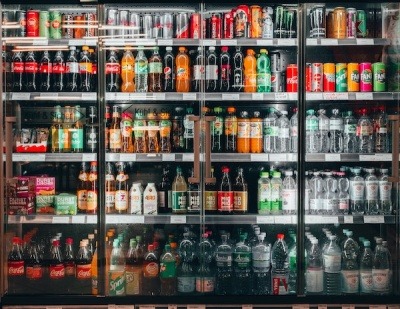Digital DRS could achieve huge savings
The UK Government can deliver a deposit return scheme (DRS) at a significantly lower cost than forecasted, according to a new report published yesterday (1 June).
Digital Deposit Return Scheme – high level economic assessment has been released by the Digital DRS Industry Working Group (IWG), a group of nine trade bodies across the drinks container value chain – including Alupro, Biffa and Ocado.
 The report, produced by consultants Resource Futures, models an ‘all-in’ digital DRS (DDRS), which would see the return of drinks containers to a chosen recycling return point, such as kerbside collection, with the deposit claimed by scanning with the use of a smartphone app.
The report, produced by consultants Resource Futures, models an ‘all-in’ digital DRS (DDRS), which would see the return of drinks containers to a chosen recycling return point, such as kerbside collection, with the deposit claimed by scanning with the use of a smartphone app.
The report comes on the back of research into options for a DRS by the Department for Environment, Food and Rural Affairs (Defra), which it modelled in an Impact Assessment published alongside the current consultation. This new research compares potential cost savings from a digital-DRS with those of several models proposed by Defra in previous consultations, such as the ‘all-in’ DRS and the RVM-DRS.
While an ‘all-in’ DRS would mean a deposit value for all drinks containers, one of the currently favoured options modelled in the Impact Assessment, the Reverse Vending Machine deposit return scheme (RVM-DRS) option would limit the deposit to drinks containers that are commonly consumed on-the-go.
The Digital DRS Industry Working Group report models the all-in DDRS model has the potential to reduce the cost of implementation by £3,344 million over 11 years and provide a benefit-to-cost ratio more than twice as good as the ‘all-in’ DRS.
This is because a DDRS would require fewer reverse vending machines as it is app-based, and so able to utilise the collection points that already exist at home as well as public recycling bins.
The report acknowledges the need of further research into technical and environmental impact, for example, the logistics of labelling cans with serial codes or the public’s preparedness for any kind of DRS.
Spokesperson for the Digital DRS Industry Working Group Eric Randall Eric Randall commented: “We believe this research is an important contribution to the debate about implementation of a Deposit Return Scheme and congratulate Resource Futures on a robust exercise which involved high levels of industry engagement on providing data and insight.
“The Industry Working Group recognises that there is more work to be done on the feasibility of Digital DRS, but the opportunity is clearly there. The significance of the potential high financial savings is notable, and we call on the Government to support industry in delivering the next stages of technical and social research needed.
“As importantly, we ask the Government to ensure that the mechanics of implementation of Deposit Return currently under development are future-proofed and do not exclude the potential for introduction of Digital DRS as a delivery mode for Government’s policy objectives.
“In particular, we ask for consideration in the drafting of Regulations that will come forward as part of the implementation of the Environment Bill and that the procurement and tendering process for the Deposit Management Organisation also do not exclude the ability to deliver utilising a Digital DRS.”
The report has been submitted to the current consultation on proposals for a DRS issued by Defra, which closes on 4 June.







